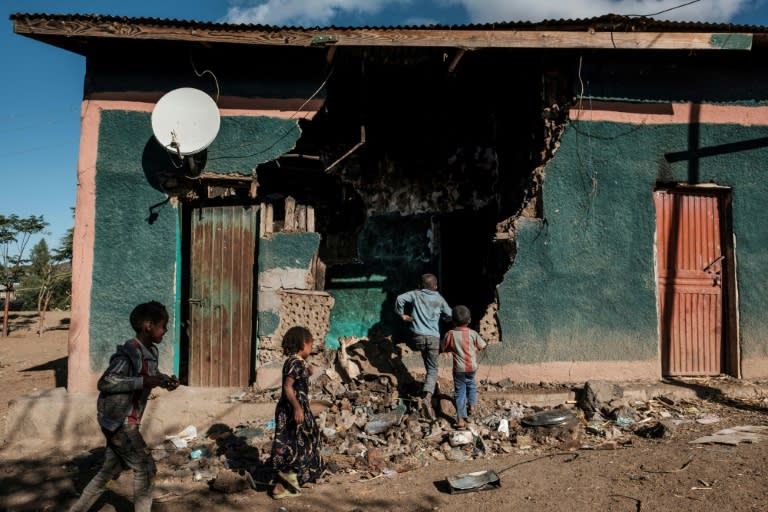A senior Ethiopian army official confirmed that troops from neighboring Eritrea entered northern Tigray during the conflict there, in a video seen by AFP on Wednesday.
Ethiopia’s federal government has long denied persistent allegations that Eritrean troops were in Tigray, where Prime Minister Abiy Ahmed launched a military offensive against dissident regional leaders in November that left thousands dead.
But General Belay Seyoum, head of the northern division of the Ethiopian army, was against these denials in a video dated in late December that was released on social media on Wednesday.
“An unwanted foreign force entered our territory” during the fighting in Tigray, he said in the video, in which he spoke to residents of the regional capital, Mekele.
The Eritrean army “entered our territory on its own, this has to be clear,” he added, without specifying when the soldiers crossed the border, where they went or whether they were still in Ethiopia.
“The primary mission of the Ethiopian Defense Forces is to safeguard the territorial integrity of Ethiopia,” he said.
“My conscience does not allow me to ask the Eritrean army to help us. We can solve our problem alone.”
In December, the United States Department of State said it was “aware of reliable reports of Eritrean military involvement in Tigray” and called for the withdrawal of troops.
Ethiopia’s ambassador to the United States, Fitsum Arega, denied the statement, tweeting, “Repeat a lie often and it will become the truth!”
Tigray residents also told AFP that Eritrean troops were in the region, accusing them of various abuses and looting.
Prime Minister Abiy reached a historic peace agreement with Eritrea shortly after taking office in 2018, winning him the 2019 Nobel Peace Prize.
Abiy’s rise ended decades of federal political dominance by the Tigray People’s Liberation Front (TPLF) – declared enemy of Eritrean President Isaias Afwerki after a 1998-2000 war between the two countries.
The prime minister launched the military operation against Tigray’s TPLF leaders on November 4, claiming victory when federal forces captured Mekele later that month.
Before the start of the conflict, Tigray was home to 96,000 Eritrean refugees who fled the Afwerki regime in one of the most authoritarian states in the world.
The UN is among those who expressed fears that Eritrean refugees in Tigray may face reprisals from Eritrean troops – or even be forced to return to the country.
– Damaged mosque –
Also on Wednesday, the council representing Muslims in Ethiopia condemned the partial destruction of one of Africa’s oldest mosques in the Tigray conflict.
Qassim Mohammed Tajuddin, secretary of Ethiopia’s Supreme Council for Islamic Affairs, said the al-Nejashi mosque was hit by artillery fire and its materials were looted.
He called on the government to “quickly bring to justice the entities that committed these shameful acts”.
Built in the 7th century, the mosque is considered one of the oldest Muslim cemeteries. Muslims believe it houses the tomb of several disciples of the Prophet Muhammad.
